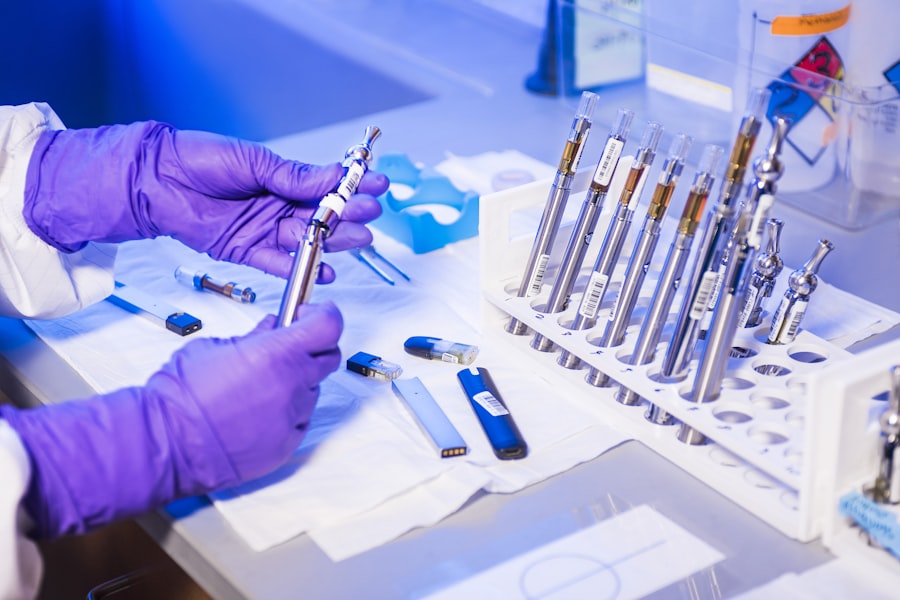Clinical trials are meticulously designed research studies that evaluate the safety and efficacy of new medical interventions, including drugs, devices, and treatment protocols. These trials are essential for advancing medical knowledge and improving patient care. They typically follow a structured process, often divided into phases, each with specific objectives and methodologies.
Phase I trials primarily focus on assessing safety and determining appropriate dosage levels in a small group of participants. Phase II trials expand the participant pool to evaluate the treatment’s effectiveness and further assess its safety. Phase III trials involve larger populations to confirm efficacy, monitor side effects, and compare the new intervention against standard treatments.
Finally, Phase IV trials occur after a treatment has been approved, focusing on long-term effects and additional uses. The significance of clinical trials cannot be overstated; they are the backbone of evidence-based medicine. Through rigorous testing and data collection, clinical trials provide the necessary information to regulatory bodies, such as the U.S.
Food and Drug Administration (FDA), to determine whether a new treatment should be made available to the public. Moreover, these studies contribute to the understanding of disease mechanisms, treatment responses, and patient outcomes, ultimately leading to improved healthcare practices and innovations in medical science.
Key Takeaways
- Clinical trials test new medical treatments to ensure safety and effectiveness.
- Participation requires meeting specific criteria and informed consent.
- Benefits include access to new treatments and contributing to medical research.
- Risks may involve side effects or ineffective treatments.
- Compensation varies, and participants can find trials through medical centers or online databases.
How can you participate in clinical trials?
Participating in clinical trials is an opportunity that many individuals may consider, especially those seeking new treatment options for their conditions. The first step in this process is to identify a clinical trial that aligns with your health status and interests. This can be done through various channels, including healthcare providers, research institutions, and online registries such as ClinicalTrials.gov.
These platforms provide comprehensive information about ongoing studies, including eligibility criteria, locations, and contact details for the research teams. Once you find a trial that piques your interest, the next step is to reach out to the study coordinators or principal investigators. They will provide detailed information about the trial’s purpose, procedures, and what participation entails.
It is crucial to have an open dialogue with the research team to address any questions or concerns you may have regarding the study. If you meet the eligibility criteria, you will typically undergo a screening process that may include medical evaluations and assessments to ensure that you are a suitable candidate for the trial.
Benefits of participating in clinical trials

Participating in clinical trials offers numerous benefits that extend beyond individual health outcomes. One of the most significant advantages is access to cutting-edge treatments that may not yet be available through standard medical channels. For patients with chronic or life-threatening conditions, clinical trials can provide hope when conventional therapies have failed or are limited.
These innovative treatments often undergo rigorous testing for safety and efficacy before being made widely available, giving participants a chance to benefit from advancements in medical science. Additionally, participants in clinical trials often receive comprehensive medical care throughout the study period. This includes regular monitoring by healthcare professionals, access to specialized treatments, and thorough assessments of their health status.
Such close attention can lead to early detection of potential health issues and provide participants with valuable insights into their conditions. Furthermore, many clinical trials offer compensation for time and travel expenses incurred during participation, making it a financially viable option for some individuals.
Risks of participating in clinical trials
| Risk | Description | Potential Impact | Frequency |
|---|---|---|---|
| Adverse Reactions | Unexpected side effects or negative reactions to the investigational treatment. | Mild to severe health complications, including hospitalization. | Common to rare, depending on the trial phase and treatment. |
| Ineffective Treatment | The treatment may not provide any benefit or improvement. | Continued illness or progression of disease. | Variable; often unknown before trial completion. |
| Placebo Effect | Participants may receive a placebo instead of active treatment. | No therapeutic benefit; possible delay in receiving effective treatment. | Depends on trial design; often 25-50% of participants. |
| Time Commitment | Frequent visits, tests, and procedures required during the trial. | Disruption to daily life and personal responsibilities. | Universal for all participants. |
| Privacy Risks | Potential exposure of personal and medical information. | Loss of confidentiality and possible discrimination. | Low with proper safeguards; varies by trial. |
| Unknown Long-term Effects | Long-term safety and effects of the treatment may be unknown. | Possible delayed adverse health outcomes. | Unknown; depends on treatment and follow-up duration. |
| Emotional and Psychological Stress | Stress from uncertainty, procedures, and health outcomes. | Anxiety, depression, or emotional distress. | Common among participants. |
While there are numerous benefits associated with participating in clinical trials, it is essential to acknowledge the potential risks involved. One of the primary concerns is the uncertainty surrounding new treatments. Since these interventions are still under investigation, there may be unknown side effects or adverse reactions that could occur during the study.
Participants may experience unexpected health complications or find that the treatment does not work as intended. This unpredictability can be particularly concerning for individuals with pre-existing health conditions or those who are already undergoing other treatments. Moreover, clinical trials often involve strict protocols that may require participants to adhere to specific schedules for medication administration, follow-up visits, and lifestyle modifications.
This level of commitment can be challenging for some individuals, particularly those with demanding personal or professional lives. Additionally, participants may face emotional stress related to their health status or the trial’s outcomes. It is crucial for potential participants to weigh these risks against the potential benefits before making a decision about involvement in a clinical trial.
How much money can you earn from participating in clinical trials?
Compensation for participating in clinical trials can vary significantly depending on several factors, including the trial’s phase, duration, location, and specific requirements for participants. In general, Phase I trials tend to offer higher compensation due to their intensive nature and the need for close monitoring of participants’ health. Payments can range from a few hundred dollars for shorter studies to several thousand dollars for longer or more complex trials.
In addition to direct compensation for participation, some trials may cover related expenses such as travel costs or provide free medical care during the study period. This financial support can be particularly beneficial for individuals who may struggle with healthcare costs or those who need to travel significant distances to participate in a trial. However, it is essential for potential participants to understand that while financial incentives can be appealing, they should not be the sole reason for joining a clinical trial; the primary motivation should be an interest in contributing to medical research and potentially benefiting from new treatments.
Finding clinical trials to participate in

Finding suitable clinical trials requires a proactive approach and access to reliable resources. One of the most comprehensive tools available is ClinicalTrials.gov, a database maintained by the National Institutes of Health (NIH) that lists thousands of ongoing studies worldwide. Users can search for trials based on various criteria such as location, medical condition, age group, and phase of the study.
This platform provides detailed information about each trial, including eligibility requirements and contact information for research teams. In addition to online databases, individuals can also consult their healthcare providers for recommendations on relevant clinical trials. Physicians often have access to information about local studies and can help patients determine if they qualify based on their medical history and current health status.
Research institutions and hospitals frequently conduct clinical trials and may have dedicated staff members who assist potential participants in navigating the enrollment process.
What to expect during a clinical trial
Once enrolled in a clinical trial, participants can expect a structured experience that varies depending on the study’s design and objectives. Initially, participants will undergo a thorough screening process that may include physical examinations, laboratory tests, and medical history assessments to ensure they meet eligibility criteria. Following this screening phase, participants will receive detailed information about what their involvement entails, including any required visits or procedures.
During the trial itself, participants will typically attend regular appointments where they will receive the investigational treatment or intervention being studied. These visits may involve monitoring vital signs, completing questionnaires about their health status or side effects experienced during treatment, and undergoing additional tests as needed. The research team will closely monitor participants throughout the study period to ensure their safety and gather data on treatment efficacy.
Participants should feel comfortable communicating any concerns or side effects they experience during this time.
Important considerations before participating in a clinical trial
Before deciding to participate in a clinical trial, individuals should carefully consider several factors that could impact their experience and outcomes. One critical aspect is understanding the trial’s purpose and how it aligns with their health goals. Potential participants should ask questions about the study’s objectives, what interventions will be administered, and how these may differ from standard treatments they might receive outside of a trial setting.
Another important consideration is the commitment required for participation. Clinical trials often involve multiple visits over an extended period, which can be demanding for individuals with busy schedules or other responsibilities. Participants should assess their ability to adhere to the study protocol and attend all necessary appointments without compromising their personal or professional obligations.
Additionally, it is vital for individuals to discuss their decision with family members or caregivers who can provide support throughout the process. Ultimately, participating in a clinical trial is a significant decision that requires careful thought and consideration of both potential benefits and risks involved. By thoroughly researching available options and engaging in open discussions with healthcare professionals and loved ones, individuals can make informed choices about their involvement in these critical studies that contribute to advancing medical science.




